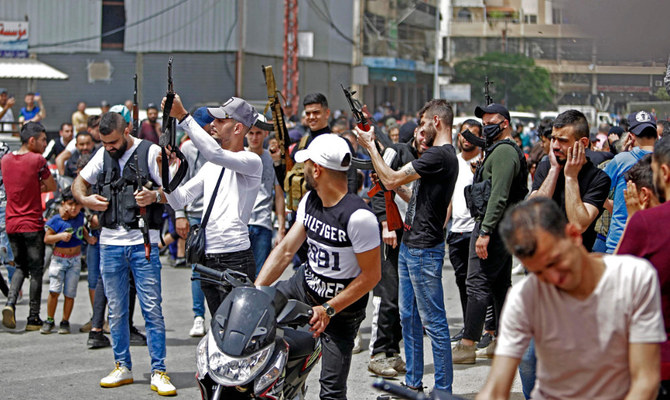Lebanese Prime Minister Najib Mikati has called for a swift and transparent probe into a tragic boat accident that left around 10 people dead, including an 18-month-old girl and her mother.
The vessel sank off the coast of Tripoli on Saturday night.
Mikati said that investigations should be conducted quickly and transparently, away from media pressure, and should include details of what happened even before the boat set off.
Lebanese Army Commander Gen. Joseph Aoun, the director of Lebanese army intelligence Brig. Gen. Tony Kahwagi and the Commander of the Naval Forces Col. Haitham Dhanawy attended an emergency Cabinet session on Tuesday and gave a detailed presentation of what happened with the boat.
The army said the boat had left Lebanon’s coast illegally and that the boat’s captain had been trying to evade capture when the collision occurred. They said about 60 people had illegally boarded the boat and were headed to Italy and stressed that the army had nothing to do with the boat capsizing.
Several survivors have said that a Lebanese military vessel rammed the boat, leading it to sink. They said a security official aboard threatened to drown them if they did not comply and return to shore. They said the majority of those who were trying to escape did not know how to swim, including women and children.
Lebanese President Michel Aoun said at the beginning of the Cabinet session: “What happened in Tripoli hurt us all,” adding that the court must investigate the incident amid conflicting stories, to clarify the truth, and put an end to any contradictory interpretations or explanations.
Ahmed Tamer, director of Tripoli port, said the search to find the missing passengers was ongoing and that a Greek frigate was taking part in the operation.
Dr. Khaldoun Al-Sherif, a political analyst from Tripoli, told Arab News: “The conflicting stories urged Mikati to insist on knowing what happened before the boat’s departure. The army says that it spotted the boat before it went out to sea but was unable to catch up and intercepted it when it was at sea. There is a missing link and an inconsistent narrative. The investigation should have started immediately and everything happening now is a waste of time.”
In Beirut, people continued to protest against a controversial capital control bill. Adopting a capital control law is one of the reforms requested by the International Monetary Fund to help the crisis-hit country.
Depositors blocked the roads leading to parliament on Tuesday to stop the joint parliamentary committees from continuing their discussions over the bill and successfully prevented MPs from achieving a quorum to hold the session.
George Adwan, head of the Administration and Justice Committee, called for rescheduling the capital control discussions until after the May 15 parliamentary elections. He stressed the need for a complete and comprehensive recovery plan that explained losses and their distribution according to responsibilities and the method for paying off losses.
“Successive governments and corrupt political officials are to blame along with the Banque du Liban, which is an accomplice to the state’s policies,” he added. “So why should we hold citizens and depositors responsible for all this? Any recovery plan must tell people how the economic, financial, and monetary situation will improve and how we will create growth and preserve the banking system after fixing the loopholes, instead of hiding behind what the IMF requested to grant Lebanon $3 billion over three years.”

